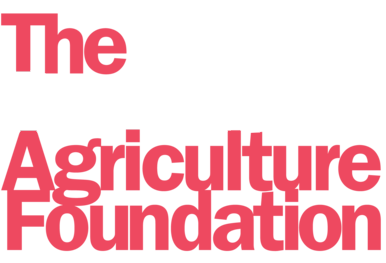What’s the Difference Between Stress and Anxiety?
June 28, 2021
By Lesley Kelly, Farmer and Co-Founder of the Do More Agriculture Foundation
On the surface, it can be hard to see any difference between stress and anxiety. After all, they're both the negative emotional experiences that can make you feel exhausted and irritable, reduce your concentration and leave you spending your nights sleepless and frantic, going through all the scenarios of how to increase the farm’s profitability and the things that could happen to derail that plan. We often use the two words interchangeably, or may even think that they essentially mean the same thing but they have different origins. Figuring out whether you're dealing with anxiety or stress is one of the most important elements in figuring out a treatment plan and how to make yourself feel better.
There is a fine line between stress and anxiety — stress can trigger anxiety, and anxiety can be a symptom of extreme stress. And many symptoms — like muscle tension, rapid heartbeat, and insomnia — can impact people experiencing both problems. But ultimately, knowing which one you're really dealing with can help you feel better faster.
What is stress?
Generally, stress is a response to an external cause which creates feelings of frustration and nervousness, such as the tight timeline for taking the crop off at harvest before it snows or having an argument with a family member, and subsides once the situation has been resolved. Because stress is caused by external factors, tackling these head-on can help. If you’re experiencing prolonged, chronic stress, there are many ways to manage and reduce your symptoms, including physical activity, breathing exercises, adequate sleep and taking time to connect with others.
What is anxiety?
Anxiety is a person’s specific reaction to stress; its origin is internal. In other words, stress happens in your body, and anxiety happens in your mind and your body. Anxiety comes from a place of fear, unease and worry in situations that are not actually threatening. Unlike stress, anxiety persists even after a concern has passed. In more severe cases, anxiety can escalate into an anxiety disorder.
Am I Experiencing Stress or Anxiety?
Here are some signs that can help you distinguish between the two:
Stress is feeling nervous about an external situation and your symptoms go away when the situation has passed. While you can cause yourself stress through negative self-talk, or a negative attitude, it is usually triggered by something external. Anxiety, on the other hand, is more internal and how you react to stressors. If you remove those stressors and still feel overwhelmed and distressed, you are likely dealing with anxiety.
Anxiety is an excessive reaction to a given situation. Certain situations are stressful, and would be for anyone, such as the loss(es) of animals or or a crop. Anxiety is more of an excessive reaction. If the worry and distress you feel in a given situation is unusual, excessive, or goes well beyond the reactions of other people, it may be anxiety rather than stress.
Being unable to complete day to day tasks or work are signs of anxiety. Most stressful situations are difficult to get through but are ultimately manageable. Anxiety disorders can leave you completely unable to manage normal, everyday tasks. If you are distressed to the point of being unable to work or carry out tasks, and/or having a panic attack, an anxiety disorder may be the underlying issue.
Anxiety may create “what ifs” over and over again in your mind. Anxiety causes feelings of dread and fear of things that haven’t happened or don’t exist. On the other hand, stress is a response to something happening or a pressure you feel. For example, with an anxiety disorder you may feel a general sense of apprehension, dread, and worry, even when there is nothing coming up that should cause you to be concerned.
Specific symptoms may be an indication of an anxiety disorder. If you have certain, specific symptoms, these may indicate you have an anxiety disorder or at least that your issue is beyond simple, everyday stress. For example, panic attacks are a characteristic of panic disorder, a type of anxiety disorder. High levels of stress and anxiety in social situations may indicate a social anxiety disorder.
No matter which issue you're struggling with, you don't have to deal with it alone. Talk to someone you trust about what you're going through, and know that no matter what you are going through, you can start feeling better.
These are guidelines for further awareness about mental health and should not be used as a diagnosis or treatment plan. If you need assistance, please contact your doctor, a mental health professional or visit the Do More Ag Resource page.
The Do More Agriculture Foundation is not intended to be a substitute for professional medical advice, diagnosis, or treatment. If you are in crisis, please visit your local emergency department or call 911 immediately.
